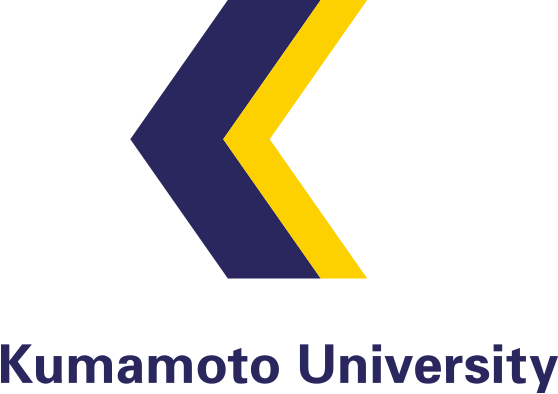Molecule secreted by cancer-associated fibroblasts promotes anticancer drug resistance
A joint project led by Kumamoto University (Japan) has discovered a new mechanism for anticancer drug resistance in gastric cancer. Researchers found that the Annexin A6 molecule contained in extracellular vesicles (EVs) is secreted by cancer-associated fibroblasts (CAFs) and taken up by gastric cancer cells, resulting in resistance to anticancer drug treatments. This finding creates new avenues for novel drug development targeting Annexin A6 and cancer-associated fibroblasts (CAFs).Gastric cancer is the second most common cancer in Japan. For advanced gastric cancer in particular, treatment involves various anticancer drugs but too often they do not sufficiently improve medical conditions.
The tumor microenvironment is the area around cancer cells that consists of various cells and support systems, both physical and biochemical. Within this microenvironment, CAFs are known to enhance the malignant transformation of cancer by secreting various factors.
“Our research found that higher amounts of CAFs in tissues resulted in worse conditions for gastric cancer patients. This was also true in patients with advanced gastric cancer who had been treated with anticancer drugs,” said Dr. Tomoyuki Uchihara. “Based on this, we wondered if there was some factor derived from CAFs that induced anticancer drug resistance.”
In a cell experiment approximating the conditions of a living human body, gastric cancer cells that were cultivated with a culture of CAFs acquired anticancer drug resistance. Through gene expression analysis in gastric cancer cells, researchers discovered that CAF-EV derived Annexin A6 played an important role in gastric cancer cell resistance to anticancer drugs. EVs are tiny sacs of material surrounded by lipid bilayers (membranes) that are released from cells and involved in cell-to-cell information transmission. The researchers also found that Annexin A6 is rarely expressed in gastric cancer cells themselves and is usually present only in CAFs.
This shows that Annexin A6 is involved in the acquisition of anticancer drug resistance by being taken up by gastric cancer cells via EVs. Further experimental results have suggested that Annexin A6 contributes to anticancer drug resistance by stabilizing the cell adhesion molecule "β1 integrin" on the gastric cancer cell membrane and activating FAK-YAP signaling after being taken up by gastric cancer cells.
"Here we showed that CAF-derived Annexin A6, which surrounds gastric cancer cells, causes resistance to anticancer drug treatments," said research team member, Associate Professor Takatsugu Ishimoto. "As the research progresses, new drugs targeting Annexin A6 and CAFs in gastric cancer are expected."
This research was posted online in "Cancer Research" on 30 June 2020.
[Source]
Uchihara, T., Miyake, K., Yonemura, A., Komohara, Y., Itoyama, R., Koiwa, M., … Ishimoto, T. (2020). Extracellular Vesicles from Cancer-Associated Fibroblasts Containing Annexin A6 Induces FAK-YAP Activation by Stabilizing β1 Integrin, Enhancing Drug Resistance. Cancer Research. doi:10.1158/0008-5472.can-19-3803
[Publication URL]
https://cancerres.aacrjournals.org/content/early/2020/07/31/0008-5472.CAN-19-3803
[Fund(s)]
1) Japan Society for the Promotion of Science (JSPS) KAKENHI, 2) The Princess Takamatsu Cancer Research Fund, 3) The Takeda Science Foundation, 4) The NOVARTIS Foundation for the Promotion of Science, 5) The Foundation for Promotion of Cancer Research
[Numbers]
1) JP16H06257, JP18K08543, JP19K16720, JP20H03531, 2) 18-25001
[Media 1]

Annexin A6 is specific to CAFs
A: The expression level of Annexin A6 protein in gastric cancer cells and CAFs. Annexin A6 is expressed only in CAFs.
B: Fluorescent immunostaining in tissues from gastric cancer patients. AnnexinA6 (green) is consistently expressed in cancer-associated fibroblasts (CAFs: upper red) (yellow region in merged figure). However, it is rarely expressed in cancer cells (lower red) (yellow areas are barely visible when merged).
CREDIT:
Dr. Takatsugu Ishimoto
USAGE RESTRICTIONS:
These images may only be used in conjunction with the accompanying release, or stories written about the work described in the release with reference to the original work.
[Media 2]

Anticancer drug resistance mechanism
Extracellular vesicle (EV) Annexin A6 secreted by cancer-associated fibroblasts (CAFs) is taken up by gastric cancer cells. Annexin A6 is involved in the acquisition of anticancer drug resistance by stabilizing β1 integrin present on gastric cancer cell membrane and then activating downstream signals.
CREDIT:
Dr. Takatsugu Ishimoto
USAGE RESTRICTIONS:
These images may only be used in conjunction with the accompanying release, or stories written about the work described in the release with reference to the original work.
